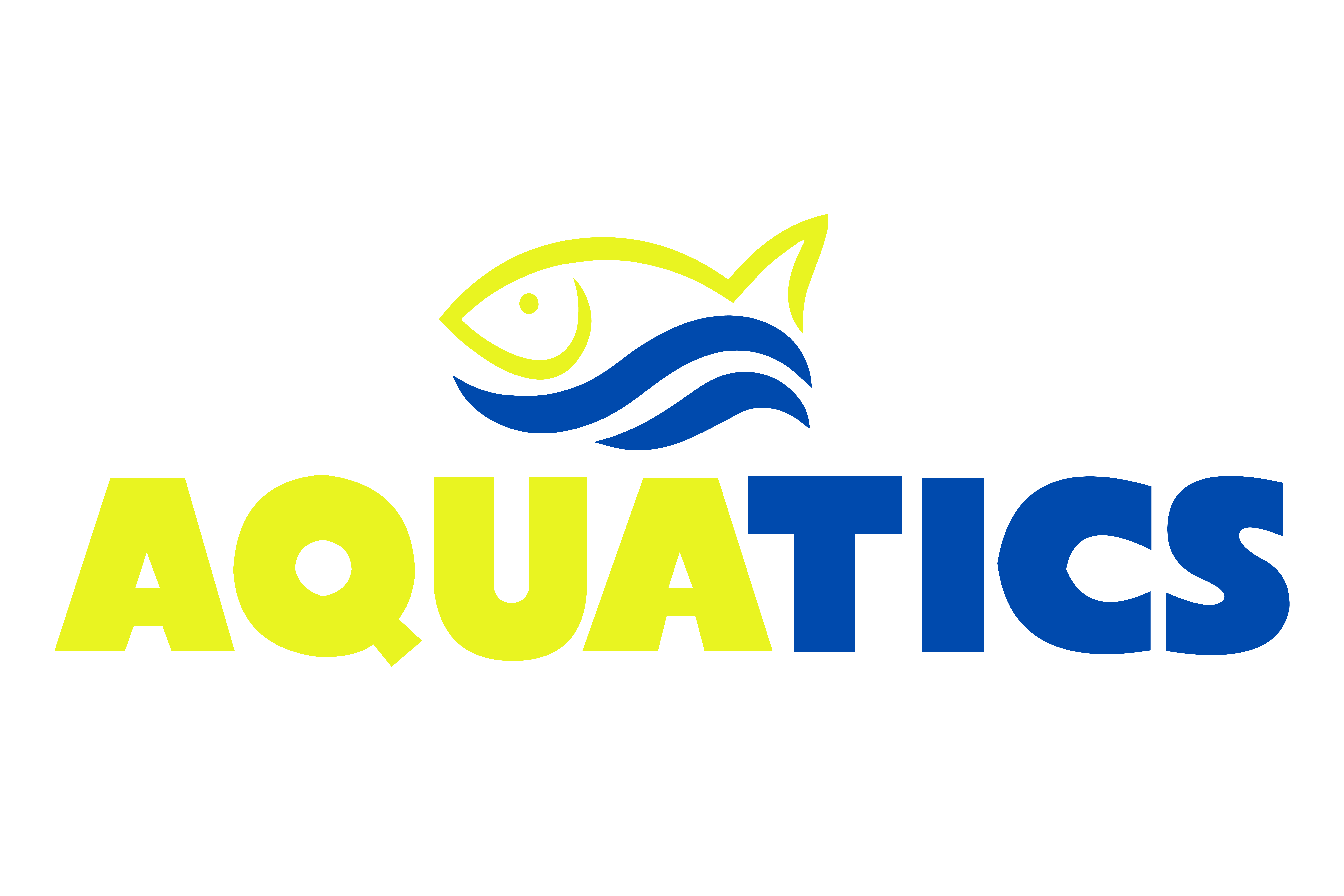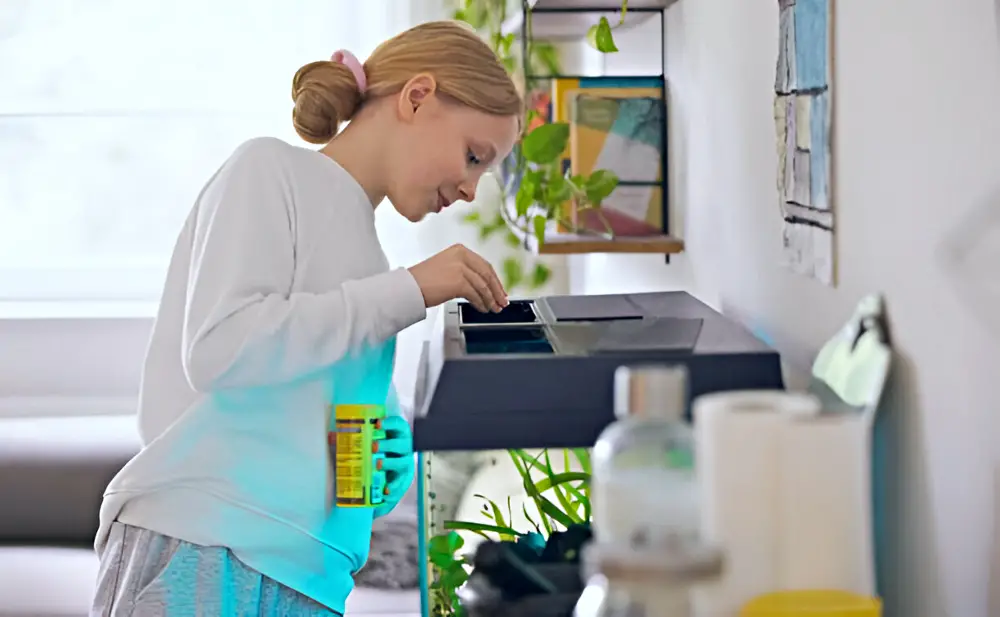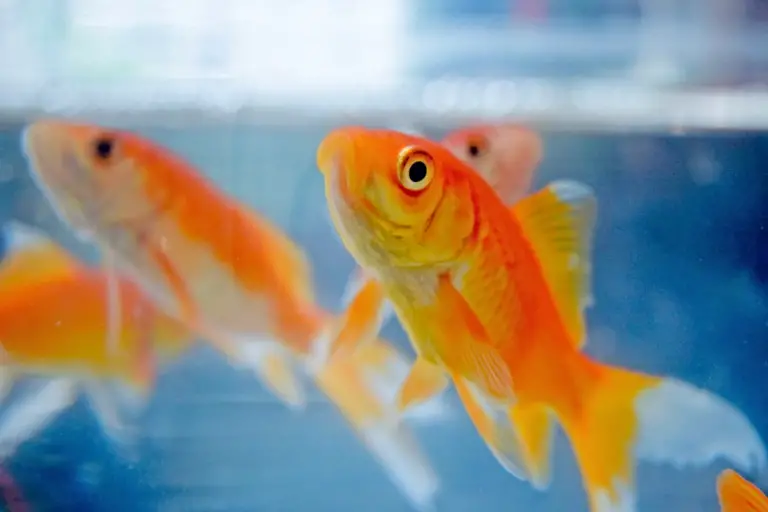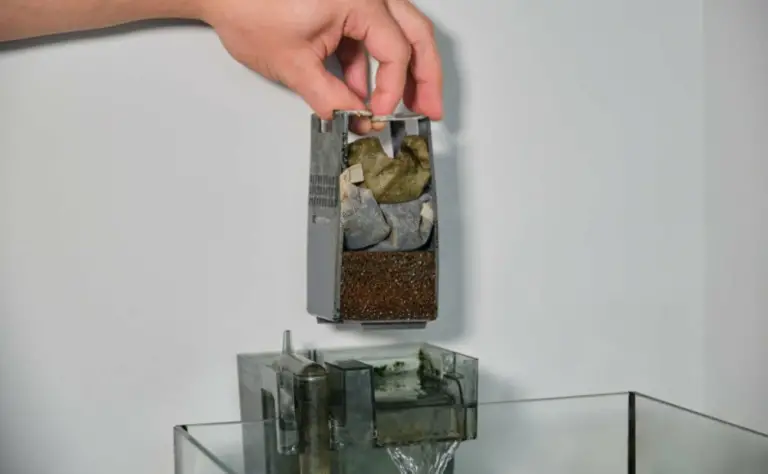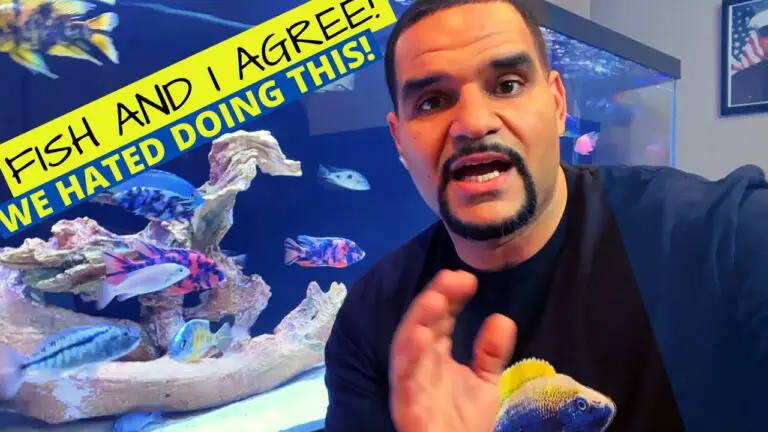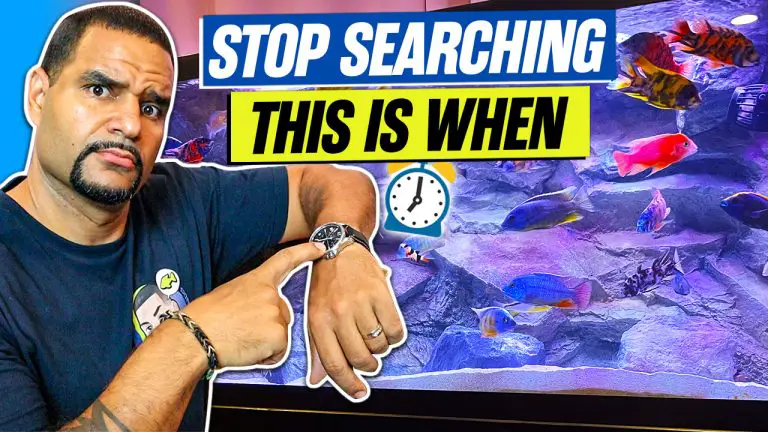How to Feed Your Fish: All Questions Answered
Are you new to fishkeeping and don’t know how to feed your fish just yet? Or, do you have some experience under your belt but have a few burning questions? Whatever your position, we’ve got you covered.
If you’re like us, you’ll want to provide the best care possible for your fish, ensuring they are alive and thriving! And sometimes, you may face some challenges along your fishkeeping journey — especially regarding their nutrition! Nutrition is a topic all on its own, and can be complicated to navigate.
Lucky for you, you’re reading this blog! We’ve swam across the web and found the top fish-feeding FAQs so you don’t have to. Without further ado, let’s dive in!
Feeding Fish FAQs
Here are the top basic and advanced FAQs on how to feed your fish.
1. What Do Fish Eat?
It’s obvious that not all fish eat the same thing when you look at the endless aisles of fish food at the pet store. Food for African cichlids and food for Discus fish might have very different ingredients. If the jar label doesn’t include your fish’s picture, how are you supposed to know what to feed them? It’s time to do some research!
Consider the following:
- Are your fish herbivores, carnivores, or omnivores?
- Do they like dry, frozen, or live foods?
- Will the food fit in their mouths?
- Should their food float, sink, or dangle in the middle of the aquarium?
- Is the food tasty for them?
For example, most common aquarium fish enjoy flake or pellet food, specially formulated to meet their nutritional needs. Some fish, like Bettas and Chlids, love a treat of freeze-dried or live foods such as bloodworms or brine shrimp. Herbivorous fish, like Plecos, might munch on algae wafers and fresh veggies like zucchini or spinach. Omnivores are happy with a mix of both plant-based and protein-rich foods.
2. How Often Should I Feed My Fish?
Most fish do well with being fed once or twice a day. Think of it as breakfast and dinner. However, some fish might prefer small, frequent meals throughout the day, especially if they’re juveniles or have high metabolisms.
3. When Should I Feed My Fish?
The majority of fish are active throughout the day, so choose a feeding schedule that begins at least 10-15 minutes after the aquarium light is turned on. By doing so, everyone will be awake and hungry.
If your aquarium has nocturnal species, such as Plecos or Kuhli loaches, you should feed them after the lights are off for the day. With the other fish being less active at night, your nocturnal fish have a better chance of getting enough food.
4. How Much Food Should I Give My Fish?
When it comes to feeding fish, less is often more! A general rule of thumb is to offer as much food as your fish can eat within 2-3 minutes. Others may say 30 seconds while others say 5 minutes — just know there is no one rule that fits all. This is because some fish eat faster than others! And no, this time estimate is not fixed on the species, it can vary per fish based on their personality.

So, how do you know how much you should feed your fish? Observation! When feeding time comes around, observe how fast they eat, how much they eat, and the roundness of their bellies afterward. They should eat everything up and have a slightly rotund belly. Of course, looking at their bellies can be challenging — especially with certain Goldfish. Look online for any reference images.
5. How Do You Know if You Are Overfeeding Fish?
Overfeeding fish is a common mistake, but the signs are easy to spot. If you see uneaten food floating around or settling at the bottom of the tank after feeding, it’s a clear indicator. Here are other key indicators:
- Cloudy water and foam at the surface are caused by decomposing food and waste.
- Excessive algae growth by increased nutrient levels in the water.
- Water quality test results may show high levels of ammonia, nitrite, or nitrate.
- Fish show physical signs like a bloated abdomen or sluggish behavior. They may even poop more than usual!
Overfeeding may eventually lead to health problems like constipation, fatty liver disease, or bacterial and fungal infections from the contaminated water. Fortunately, there is a simple fix — feed your fish less and take out any food that hasn’t been consumed within 10 minutes. Vacuuming the substrate ought to do the trick!
6. How Do You Know if You Are Underfeeding Fish?
Underfeeding fish isn’t as common, but it does happen. Here are a few signs to look out for:
- Your fish might seem unusually active, constantly searching for food, or even nipping at plants and tank mates if they’re hungry.
- Your fish might appear thinner or have sunken bellies (if their sunken bellies persist, it may be something more serious).
- Your fish may lose color over time.
Just be advised that these symptoms are also strikingly comparable to those of an internal parasitic or worm infestation in fish. Fish may require antiparasitic or deworming treatment to get rid of any unwanted hitchhikers if they are receiving plenty of food but are unable to put on weight.
Regularly monitoring your fish’s body condition and behavior helps. If they eagerly eat everything you offer within seconds and still seem to be searching for more, you might need to increase their food slightly. Just be cautious not to swing to the other extreme and start overfeeding. Balance is key!
7. Why Are My Fish Always Hungry?
If your fish always seem to be begging for food, don’t worry — they’re probably just good actors! Many fish are naturally opportunistic feeders, meaning they’ll eat whenever food is available, even if they’re not really hungry. In the wild, food isn’t always abundant, so they’ve evolved to eat whenever they get the chance.

However, there could be a few other reasons behind their constant “hunger”:
- Check if you’re feeding them the right amount.
- Poor water conditions can make fish stressed, leading them to eat more or appear to be constantly hungry.
- Consider their diet. Are they getting a balanced mix of nutrients? Sometimes, fish might seek more food if their diet is lacking in certain nutrients. There are fish supplements you can consider adding to their diet.
8. Should I Feed My Fish Differently if They Are Breeding?
Absolutely! Breeding fish have higher nutritional needs to support their energy and health during this crucial time. Providing a varied and nutrient-rich diet is essential.
High-quality flake or pellet food is a good base, but supplementing with live or frozen foods like brine shrimp, daphnia, or bloodworms can boost their protein intake. Some species also benefit from extra plant matter if they are herbivorous.
Feeding small, frequent meals can also help maintain their energy levels. Always research the specific needs of your breeding fish species to ensure they receive the best care.
9. How Long Can Fish Go Without Food?
Fish can surprise you with their resilience! Most healthy adult fish can go without food for 3 to 7 days without any problems. Some hardy species might even stretch this to two weeks. However, it’s not ideal to leave them unfed for long periods.
If you’re going on vacation, consider an automatic feeder or asking a friend to feed them. Fry and young fish, on the other hand, need more frequent feedings due to their fast metabolism. Always ensure they’re well-fed and healthy before planning to be away.
10. What Should I Do if My Fish Refuse To Eat?
If your fish are turning their noses (or gills) up at food, it’s time to play detective:
- Check the water quality as poor conditions can stress fish, causing them to lose their appetite.
- Ensure you’re offering the right type of food for their species. Sometimes, they might just be bored with their diet, so try introducing variety.
- Observe their behavior for signs of illness, like lethargy or unusual swimming patterns. If everything seems fine but they still won’t eat, consult a vet specializing in fish. A little attention and care can get them back on track.
That said, sometimes the problem lies in the species. Certain species are notoriously picky eaters such as Discus fish, Bettas, Dwarf Gourami, and Clown Loach.
11. Can Fish Get Bored With Their Food?
Fish normally don’t get “bored” of food. But, fish can become accustomed to a monotonous diet and may show less interest in eating if they’re constantly fed the same thing.

When you feed your fish, they might show behaviors like ignoring food, eating less enthusiastically, or appearing less active. While this isn’t boredom in the human sense, it’s a way of expressing that they may become less stimulated by their diet. Through a bit of variety every now and then, and see if it helps.
12. How Do I Introduce New Food to My Fish?
The process is the same if you have other pets like a dog or cat. Start by mixing a small amount of the new food with their current diet. Gradually increase the proportion of the new food over a week or so. This gradual transition helps them adjust to the new taste and texture without causing digestive upset. Just keep an eye on how they respond.
Never Forget to Feed Your Fish With Aquibuildr!
Take the guesswork out of mealtimes! Set up feeding reminders on the Aquabuildr app to ensure you feed your fish every day and at the right time.
With Aquabuildr’s intelligent algorithm, it takes the guesswork out of creating the perfect aquarium environment for your finned friends. From pH value to fish gender, it considers all the crucial parameters to suggest compatible fish for your tank. Plus, the option to customize your tank or choose from a range of starter tanks makes it incredibly convenient.
Download Aquabuildr for FREE on the Google Play Store or Apple App Store today and feel the power of smart fish-keeping!
-
How to Feed Your Fish: All Questions Answered
Do you have any burning questions on how to feed your fish? We’ve got you covered! Get all the answers you’ve been looking for with this complete list of FAQs.
